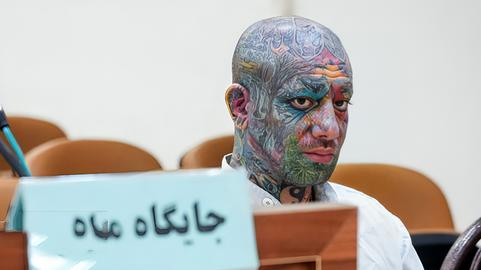
It was all sparked by a proposed rise in the bus fares in Sao Paulo. Locals took to the streets in protest and, against the backdrop of the Confederations Cup in 2013, with the world paying more attention to Brazil than normal, those demonstrations soon took in a variety of popular concerns. With the authorities strangely complacent and the police behaving brutally, protests spread to more than 100 cities. For many, perhaps, the timing was coincidental: anger had simply reached tipping point. After all, Brazil is a nation with an unusually high tax burden and disproportionately poor infrastructure. It’s easy to understand why Brazilians feel their government has short-changed them.
But for others the timing was not coincidental at all. The presence of the world’s media might not have stopped police excesses, but they at least meant they were reported on and given attention in the media. And as analysts and the leaders of the demonstrations tried to make sense of what was going on and to pinpoint what demands were actually being made, it became apparent that the World Cup was a manifestation of what many saw as being wrong with the country.
From one point of view, FIFA has made endless demands on Brazil, while at the same time demanding tax privileges. Protesters called for “FIFA-quality schools, FIFA-quality hospitals, FIFA-quality transport”. FIFA became emblematic of the multinationals, which many see as taking advantage of Brazil. But there was also anger directed closer to home, at the class that has siphoned off millions of dollars from construction projects that have simply not been completed for the World Cup, and may never be ready. The stadiums should have all been in some sort of working order by the time the tournament got under way on Thursday, June 12, but many improvements to airports, road and rail links remain years from completion. Without the World Cup to act as a target, they may never be finished.
“This is a moment of unrest and uncertainty—both in terms of the cup and also society,” Tostao, the great Brazil forward in 1970, told the Observer in February. “The cup will happen. That's certain. There is no way they will let it not happen. But what is success? For the Brazilian people, the cup meant lots of public spending, a lack of lasting infrastructure, a lack of social projects, but for the government a successful cup means something completely different. We're all in doubt right now because we just don't know what's going to happen”.
The scale of protests meant the mood and demands varied. Some demanded public transport be made free, a wholly unrealistic goal. Metro stations, buses and buildings were set on fire. There was an attempt to storm the CBF's headquarters. Police used plastic bullets and tear gas to disperse protestors. People were arrested simply for carrying vinegar, which can help mitigate the effects of tear gas. The majority of the 20 or so deaths – there is no official figure – during the protests in 2013 were caused by people in trouble spots being knocked down by traffic, but Cleonice Moraes, a 54-year-old cleaner, was killed after inhaling a deadly amount of tear gas in Belem. Before Brazil’s semi-final against Uruguay in Belo Horizonte, around 120,000 protested outside the stadium and tear gas could be smelled distinctly at kick-off.
“Sometimes it was a little like carnival because people were wearing costumes and so on,” Professor Clarissa Moreira, who studied and took part in the protests, told James Corbett in a piece for The Blizzard. “What was different was the police presence: they arrived in a much more aggressive way. We know now from people who lived through the dictatorship that the police have been more violent than at that time.
The impact on people's liberties concerns me a lot. I think it's because we have a generation that has not lived through the dictatorship or repression. But their fathers and parents were afraid because they know what the police can do. But they didn't remember. So now we have another traumatized generation, but I think young people are braver now.”
There has been a change in the perception of the demonstrators as well. Where once the middle classes scorned public protest, now they have joined them. The angriest demonstrators are probably those from the favelas who have been forced out of their homes to make way for World Cup and Olympic building projects, but there are also those determined to highlight the rampant cronyism and corruption within Brazilian society.
Football again serves as an example of where Brazilian society has lost its way. Football was once the one game that brought all Brazilians together, black and white, rich and poor. Now the expectation is that in the new stadiums – paid for largely out of the public purse – ticket prices will be so high that the poorest will have no hope of ever affording them. If that is the World Cup’s legacy, it will be scandalous.
What makes it worse is that so many of the stadiums are wholly unnecessary. It would have been far cheaper and easier in Sao Paulo, for instance, to redevelop the Morumbi, the home of Corinthians, but for political reasons a new ground has been built. Brasilia and Curitba don’t even have top-flight teams. The gigantism is a feature of recent World Cups, partly because every politician wants a stadium on his home turf, and partly because the more construction that goes on, the more money there is to be sliced away in kick-backs.
In that context, it’s hard not to wonder whether this is it for the World Cup in its present form. What states, after all, will actually commit to such projects and all the concessions FIFA demands? Only oil-rich nations with a desire to generate political capital from hosting a global event – nations like Russia and Qatar. If the World Cup, though, becomes a locus for protest, those propaganda gains may not be so clear. The reputations of Brazil and Qatar have taken a hammering over the World Cup; a decent tournament may yet rescue Brazil’s reputation, but Qatar has eight more years of this mudslinging, most of which have little to do with Qatar itself and everything to do with the corporatization of football and the culture of greed within FIFA.
In way, the ideals of the protesters -- who are striking back against the wealthy and the powerful who have alienated them from something they hold dear-- and those disillusioned by modern football have coincided. This makes the World Cup a truly impressive stage for protest.
For further coverage of the World Cup, see:
“Iran Can Beat Any Team in the World”: Interview with Ciro Blažević
Nigeria’s Front Line: A Challenge for Team Melli






















comments